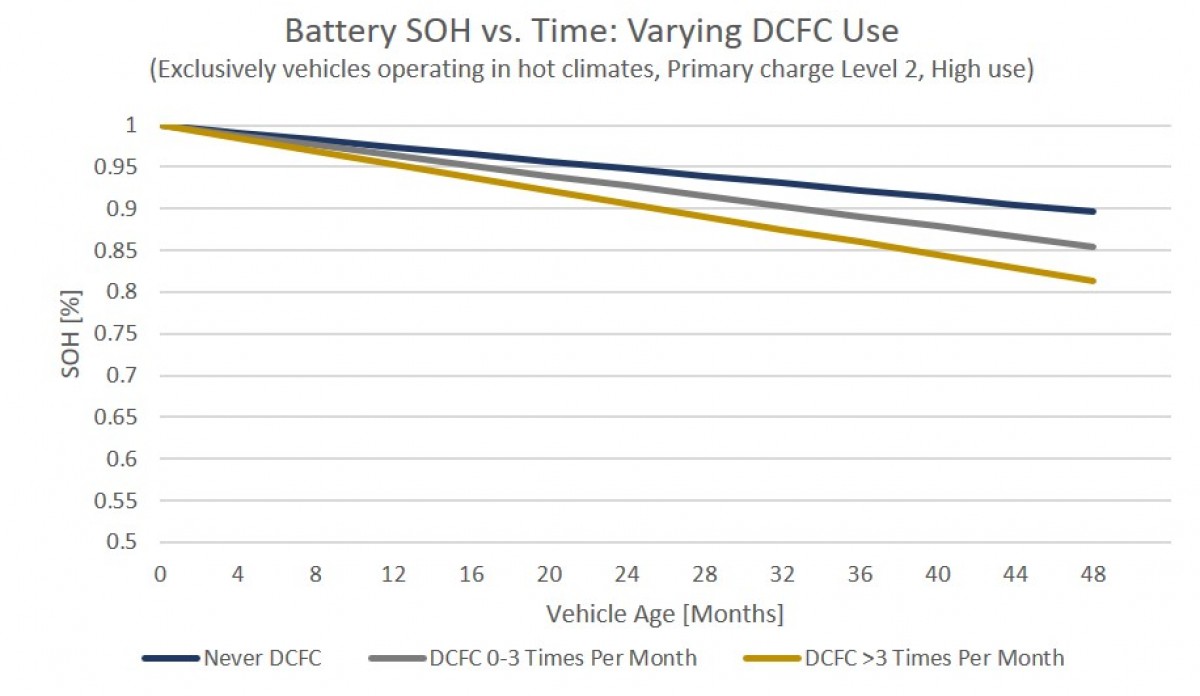Another myth busted - EV battery can easily outlast the vehicle itself
One of the most persistent myths about electric cars revolves around the big, expensive battery pack. Skeptics often question the longevity of these high-voltage hearts with a familiar narrative: "You'll be forking over a fortune for a new battery in just a few years." Well, they might be wrong. A growing mountain of real-world data is systematically dismantling this myth, offering a far more optimistic outlook for current and future EV owners.

Recent analysis from telematics company Geotab, which monitors over 10,000 electric vehicles, suggests that the average EV battery is surprisingly resilient. The study reveals that most of these power packs could theoretically last for two decades. An EV battery experiences a loss of capacity of about 1.8% per year on average. This means a gradual reduction in the vehicle's original range, but it's hardly a catastrophic failure. After 20 years on the road, an EV could still keep about 64% of its initial range - a surprisingly practical number for many drivers.
This degradation isn't a straight line, and batteries tend to lose a bit more capacity in their first few years of service, after which the decline slows and stabilizes for a long period. A final, more significant drop-off typically occurs only at the very end of the battery's operational life. The fear of sudden, complete battery failure appears to be largely unfounded. Studies on EVs manufactured in the last decade indicate a battery failure rate of less than 0.5%, making it a statistically rare event.

Of course, many factors can impact the health and lifespan of an electric car's battery. Climate plays a big role; EVs operated in consistently hot environments tend to exhibit faster degradation. Modern electric cars are equipped with sophisticated thermal management systems, using liquid cooling and heating to maintain the battery within its optimal temperature range. Even simple measures like parking in the shade, especially during charging on a hot day, can make a difference.
Let's not forget that charging habits also have an impact, and the convenience of DC fast charging comes at a cost. Frequent use of these high-powered chargers can marginally accelerate battery degradation compared to slower Level 1 or Level 2 AC charging at home. For many drivers, the occasional fast charge is a necessary part of long-distance travel, but relying on it for daily charging may not be the best strategy for long-term battery health.

The type of battery chemistry also dictates best practices. For vehicles with nickel-manganese-cobalt (NMC) or nickel-cobalt-manganese (NCM) batteries, experts recommend keeping the state of charge between 20% and 80% for daily use. Routinely charging to 100% or letting the battery dip to very low levels can put extra stress on the cells.
For the increasingly popular lithium-iron-phosphate (LFP) batteries, this rule is more relaxed. In fact, some manufacturers using LFP packs recommend charging to 100% periodically to help the battery management system accurately calibrate its range estimates. Ultimately, just as a gasoline-powered car requires oil changes and maintenance, an EV battery benefits from mindful ownership to maximize its already impressive lifespan.

Reader comments
- Anonymous
- Ib5
Yeah, my battery is holding up better than this as well. I don’t know a single EV owner with battery problems, and a couple of my friends have cars from the first few years of Tesla.
- EuropeGo
- 3SL
Well, you know the wrong people apparently. My driving battery (yes, not the 12V) is now 12 years old. Almost no degradation. But I spotted the first tiny rust spot. I'm pretty sure the car is finished before the battery.
- Anonymous
- kmq
Estimated EV range can be deceptive manipulation of regulatory. Odor of diesel-gate.





Facebook
Twitter
Instagram
RSS
Settings
Log in I forgot my password Sign up